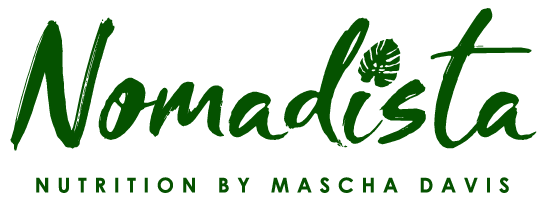February is American Heart Month, an important time to highlight heart disease and nutrition strategies to support your cardiovascular system.
In today's post we are going to explore the pivotal role of nutrition in fostering cardiovascular wellness, providing you with insights, tips, and a BONUS heart healthy recipe to nourish your heart this month.
WHY SHOULD YOU CARE ABOUT HEART HEALTH:
Even if you don’t have heart disease, it’s very likely someone close to you may have it or will develop it. Sadly, heart disease is the leading cause of death worldwide. The American Heart Association (AHA) 2024 Statistical Update shared these shocking statistics:
On average, someone in the US dies of cardiovascular every 34 seconds
For US adults, high LDL-C (≥130 mg/dL) is present in 25.5% of the population
In 2021, the global death toll attributed to high LDL-C was 3.72 million people
An estimated 47% of US adults, which is equivalent to 122.4 million individuals, are thought to have hypertension
While these stats sound scary, the good news is that, in many cases, heart disease is preventable and can be reversed through dietary and lifestyle changes.
Let’s dive into key nutrients to add in and avoid to support your heart health.
NUTRIENTS TO ADD IN TO IMPROVE HEART HEALTH:
Fiber. Fiber, found in foods like oats, beans, fruits, veggies and seeds has the remarkable ability to lower LDL (aka “bad”) cholesterol levels. By binding to cholesterol molecules, fiber helps to excrete them from the body, reducing the risk of heart disease.
Tips to add in more fiber: sprinkle flax seeds on yogurt/cereal, have a fruit or veggie at each meal, opt for 100% whole grain bread or start your day with oatmeal.
Poly and monounsaturated fats. Contrary to popular belief, a low fat diet is not always heart healthy. You can and should include poly and monounsaturated fats (found in foods like olive oil, avocados, nuts and seeds) into your diet. These fats are associated with improved blood vessel function, inflammation reduction, and overall cardiovascular well-being.
Tips to add in more healthy fats: snack on olives or almonds, cook with olive or avocado oil, choose an avocado based mayo.
Omega 3s. Omega-3s found abundantly in fatty fish like salmon, tuna, sardines and trout have strong anti-inflammatory properties that support heart health. Consuming more omega-3s has specifically been linked to a reduction in triglyceride levels. If you want to learn more about your omega-3 status, I offer an at home nutrigenomics test to help you see the bigger picture of your heart health. You can book a call here to learn more!
Tips to add in more omega-3s: try canned tinned fish like these from Scout, swap steak for salmon when eating out or make a quick tuna salad for lunch.
Antioxidants. Antioxidants, abundant in fruits, vegetables, and nuts, contribute to heart health by reducing oxidative stress, protecting blood vessels and lowering inflammation.
Tips to add in more antioxidants: The deeper the color of the fruit/veggie, the more antioxidants it has. Prioritize incorporating richly colored produce like berries, cherries, carrots, and dark leafy greens such as kale and spinach.
NUTRIENTS TO LIMIT TO OPTIMIZE HEART HEALTH:
Sodium. Excessive sodium intake has been linked to an increased risk of high blood pressure and cardiovascular diseases. Consuming too much sodium can lead to fluid retention, causing the heart to work harder and potentially contributing to the development of hypertension. The American Heart Association recommends no more than 2,300 mg of sodium a day and is moving toward an ideal limit of no more than 1,500 mg per day for most adults. Some research suggests that up to 40% of the normal population may be salt-sensitive, meaning they are even more prone to develop hypertension. To find out if you are salt sensitive, book a call with me to chat about nutrigenomics testing.
Saturated fats. High intake of saturated fats, commonly found in red meat, full-fat dairy products, and coconut oils, is associated with elevated levels of LDL cholesterol, a major risk factor for heart disease. The Dietary Guidelines for Americans recommends limiting calories from saturated fats to less than 10% of the total calories you eat. For a 2000 calorie diet, this would be no more than 22g saturated fat per day.
BONUS way to boost your heart health! Try this Fiber Filled Superfood Smoothie:
Ingredients for 1 smoothie:
1/2 cup strawberries, frozen or fresh
1/4 cup raspberries, frozen or fresh
1/2 cup frozen riced cauliflower
1 tablespoon ground flaxseeds
1 tablespoon chia seeds
1 cup unsweetened vanilla almond milk
1 tablespoon lucuma powder (optional)
1 scoop Hum vegan protein powder (low FODMAP)
Instructions:
Combine the mixed berries, frozen riced cauliflower, raspberries, ground flaxseeds, chia seeds, lucuma powder, and vegan protein powder in a blender.
Pour in the unsweetened vanilla almond milk.
Blend on high speed until smooth and creamy.
If the consistency is too thick, you can add more almond milk until you reach your desired thickness.
Pour into a glass and enjoy your nutritious and delicious smoothie!
Now that you have this knowledge, comment below one change you’ll be making in February to improve your heart health!




